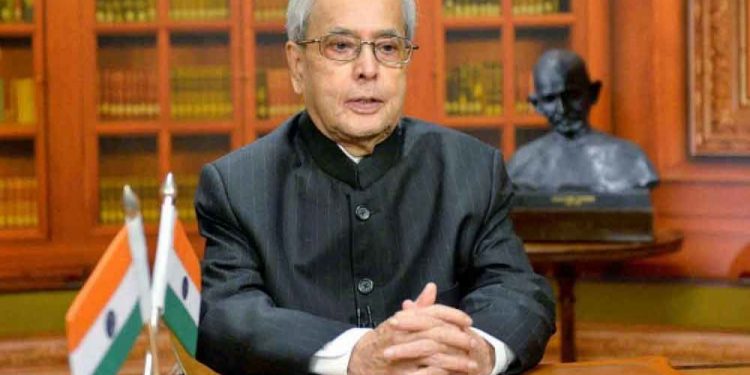Kolkata: Former President Pranab Mukherjee has said the Indian education system needs to be re-oriented to make students ‘risk-takers and innovation makers’ and take the nation ahead.
“In every sphere of our lives, the influence of science and technology is becoming so pervasive that human existence is simply inconsiderable in its absence. To train the students and develop professionals, our education system needs to reorient itself to achieve necessary practical and technical goals,” Mukherjee said during a special convocation ceremony of Techno India University, here Wednesday.
“Science and technology are duly recognised as the vehicle to take India into the frontline nations. We have to preserve the will of a large pool of scientific and technically-competent manpower to reach our goal,” he said.
Mukherjee lamented that entrance examinations for technical studies were encouraging rote learning. “The most important tool that a person in a technical profession should possess is analytical and creative thinking. Selection process based on these criteria will enable students to carve a niche for themselves. Science and technology are all about taking risks and failing,” he said.
The Bharat Ratna awardee stressed on ‘innovations’ to provide a competitive edge to business and solutions to effective governance. The university announced a scholarship scheme named after Pranab Mukherjee where two meritorious students from the underprivileged sections will get to study free of cost at the under-graduate level.
These two students will have to give an undertaking that after completing their respective courses they will sponsor one student to study at the university.
On the occasion, ‘Doctor of Letters’ was awarded to Sukumar Mukherjee, former head of the Department of Medicine in the Calcutta Medical College and Hospital, currently chairman of the medical advisory committee in the West Bengal health department.
Hindustani classical vocalist Pandit Ajoy Chakrabarty and Sparsha Mani Chatterjee, a former vice-chancellor who served in national and international policy-making bodies, were also honoured with ‘Doctor of Letters’.






































